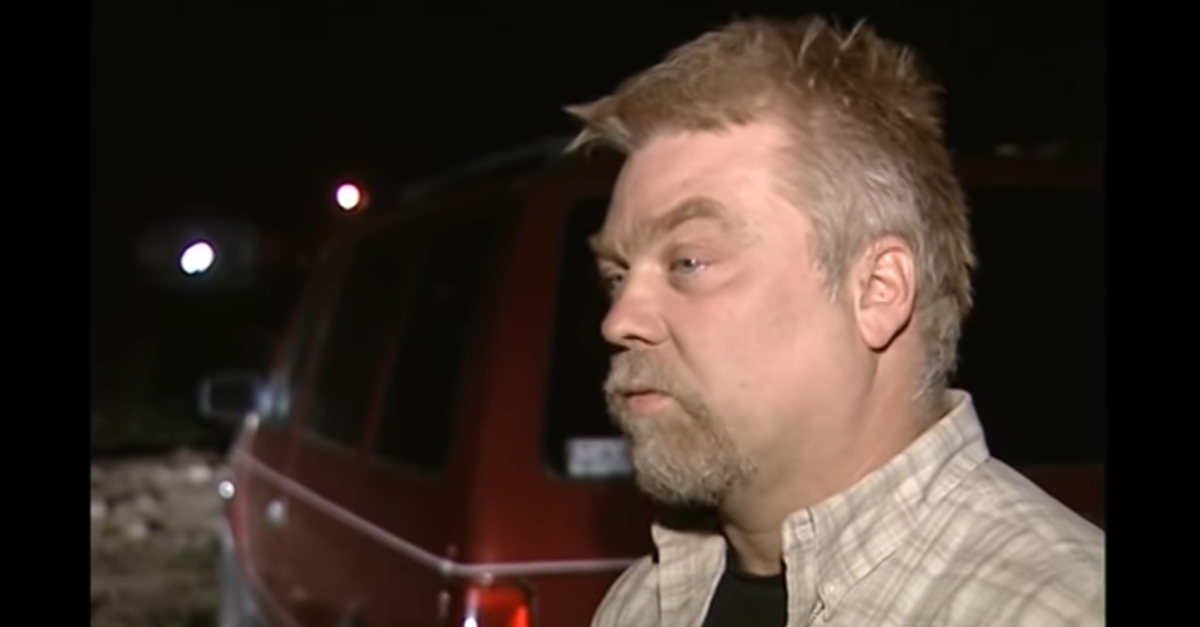
The appellate team of Steven Avery, the Wisconsin convict profiled on the Netflix docuseries Making a Murderer, filed a new appeal with in state court on Monday. In the massive 150-page filing, there were 10 main arguments. One of those arguments was that Avery’s trial team of Dean Strang and Jerome Buting provided ineffective assistance of counsel.
“Trial defense counsel committed themselves to 1 theory about the source of the planted blood by claiming that it came from the 1996 blood vial and was planted by law enforcement,” the filing said in one place. “However, trial defense counsel did nothing to substantiate the theory for 8 months prior to trial, and at the pre-trial conference on December 20, 2006, they declined the State’s offer to split the sample and perform ‘simultaneous testing’ or to ‘join the State in pursuing a single test.'”
The key headings from the appeal were many and as follows:
I. The circuit court abused its discretion in denying Mr. Avery’s motion to vacate its October 3, 2017, order and allow additional scientific testing.
II. The circuit court abused its discretion in summarily dismissing Mr. Avery’s second motion pursuant to Wis. Stats. § 974.06 without addressing the 5 Brady claims raised and in subsequently denying Mr. Avery’s Motion to Supplement which raised a 6th Brady claim all of which deprived him of due process, in violation of the Wisconsin and United States Constitution.
III. The circuit court erred as a matter of law in failing to address Mr. Avery’s claim of ineffective assistance of trial counsel.
IV. The circuit court erred as a matter of law, in ruling that it was not authorized by statute to resolve claims of ineffective assistance of prior postconviction counsel, and that Mr. Avery would have to pursue that claim with the Court of Appeals pursuant to
State v. Knight 168 Wis. 2d 509, 484 N.W.2d 540 (1992).
V. The circuit court abused its discretion in dismissing Mr. Avery’s second motion pursuant to Wis. Stats. § 974.06 without requiring the State to respond or conduct an evidentiary hearing.
VI. The circuit court erred as a matter of law in applying the wrong standard to the newly discovered evidence.
VII. Mr. Avery raised sufficient reason as to why these issues could not have been raised in prior motions pursuant to Wis. Stats. § 974.06.
VIII. The circuit court abused its discretion in denying Mr. Avery’s motion to reconsider and his three supplements to said motion, which included new evidence developed after his original filing on June 7, 2017.
IX. The circuit court abused its discretion in ignoring the subsequent briefs submitted by the parties incident to the motion to supplement.
X. The circuit court erred in denying Mr. Avery’s supplemental motion for postconviction relief pursuant to Wis. Stat. § 974.06 concerning the discovery of human bones in the Manitowoc County Gravel Pit before trial.
After wrangling with these issues for more than 100 pages, Avery’s team asked the Wisconsin Court of appeals to grant Avery “one of the following alternative remedies: 1) reverse the Orders Denying Postconviction Relief and remand for the State to file a response to the Motion for Postconviction Relief, and/or grant an evidentiary hearing; 2) reverse the judgments of conviction and the orders denying Postconviction Relief and remand for a new trial.”
Avery’s current attorney Kathleen T. Zellner has been a vocal advocate for him, maintaining Avery’s innocence in the 2005 murder of photojournalist Teresa Halbach. In September, Zellner even offered a reward for the “real killer.”
THE ANNOUNCEMENT: pic.twitter.com/92AKiZQWC3
— Kathleen Zellner (@ZellnerLaw) September 9, 2019
After that reward went public, a known convicted murderer, Joseph Evans, claimed to have actually been the person who murdered Halbach. Zellner promptly said that the “confession” was not credible, while Avery himself reportedly laughed at Evans’s letter.
Avery and his nephew Brendan Dassey were found guilty in separate trials for Halbach’s murder. Dassey unsuccessfully appealed his case up to the U.S. Supreme Court, arguing that his confession to investigators was coerced. His defense is now asking for clemency from the governor of Wisconsin.
Today, we filed a petition for clemency on behalf of Brendan Dassey with the Governor of Wisconsin.
We’re asking for a pardon or commutation on the basis of actual innocence and his extreme sentence. Visit https://t.co/iU1ZFGDb3a to voice your support.https://t.co/eQTUvPaN6S
— Laura Nirider (@LauraNirider) October 2, 2019
You can read the entire filing below if you so desire.
Steven Avery files appeal by Law&Crime on Scribd
[Screengrab via NBC26]
Have a tip we should know? [email protected]